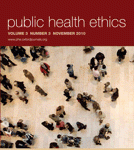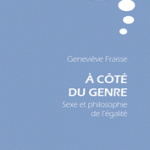Journée d’étude – Des corps et des animaux entre technologie et nature : animalité et robotique
Journée d’étude sur « animalité et robotique » organisée par le groupe de travail « Corps, techniques et société » de l’Association française de sociologie avec le soutien de l’Université Paris 1 et de l’ENSCI
Vendredi 26 novembre 2010. 9h00 – 17h00
Ecole Nationale Supérieure de Création Industrielle (ENSCI), 48, rue Saint Sabin 75011 Paris M° Bréguet-Sabin ou Chemin Vert
9h00-9h15 Accueil, présentation de la journée
Introduction : Marina Maestrutti, Caroline Moricot, Valérie Souffron (CETCOPRA, Univ. Paris 1)
1. Déplacements des frontières entre animaux, humains, robots.
Modérateur : Denis Vidal (IRD, EHESS)
9h15-10h00 Guy Theraulaz (Centre de Recherche sur la Cognition Animale, CNRS, Toulouse). L’intelligence collective des insectes sociaux, un modèle pour la robotique ?
10h00-10h45 José Halloy (USE, Université Libre de Bruxelles). Construire des groupes mixtes d´animaux et de robots pour étudier l´intelligence collective
11h00-12h30 Emmanuel Grimaud (LESC, CNRS), Stéphane Rennesson (LAU, CNRS). Jeux d’espèces (scarabées, poissons, oiseaux). Une ethnographie comparée.
Projection du film
13h-14h30 Pause déjeuner
2. Rencontre ou dépassement ? Corps et comportements animaux à l’épreuve de l’artificiel.
Modérateur : Daniela Cerqui (Université de Lausanne, Suisse)
14h30-15h15 Dominique Lestel (ENS). Les animaux ont-ils un avenir dans le contexte des technologies NBTIC?
15h15-16h00 Agnés Guillot et Jean-Arcady Meyer (ISIR, UPMC/CNRS). Animaux-automates, animaux-robots : leurres, outils, modèles ou compagnons ?
16h00-17h00 Débat
Sans inscription – contacts : valerie.souffron@univ-paris1.fr Caroline.Moricot@univ-paris1.fr maesma@libero.it
Sites : www.cetcopra.univ-paris1.fr www.afs-socio.fr www.ensci.com




 Literature and Medicine, Volume 28, Number 2, Fall 2009
Literature and Medicine, Volume 28, Number 2, Fall 2009